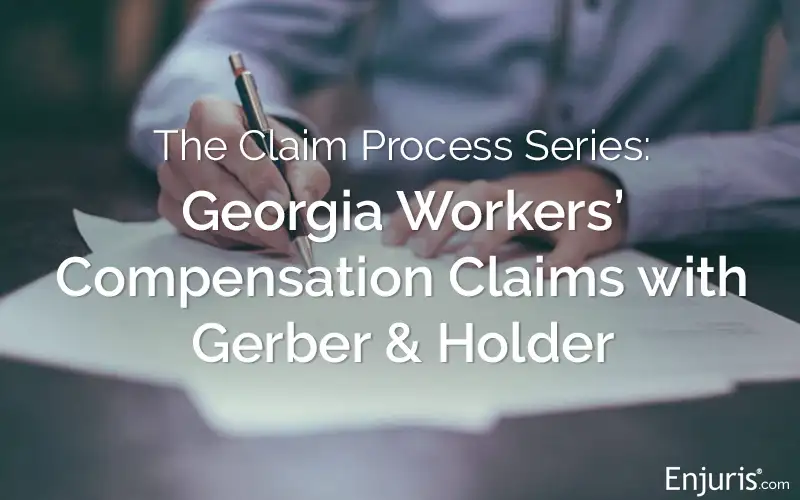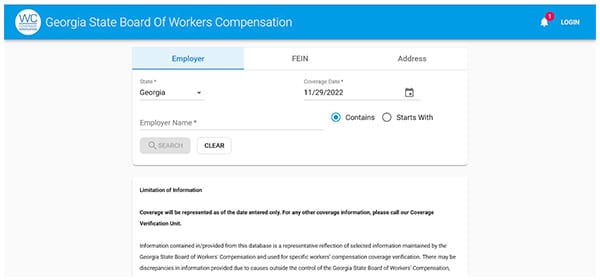The Georgia workers’ compensation system covers roughly 3.8 million workers. That means the vast majority of workers have some peace of mind that they’ll likely be compensated if they’re injured while performing their job duties.
However, not all workers are eligible for workers’ compensation. In this blog post, we’ll take a look at who is (and is not) eligible for workers’ compensation in Georgia, as well as the legal options that exist for injured workers who do not have workers’ compensation coverage.
What is the purpose of workers’ compensation insurance?
Prior to the passage of the Georgia Workers’ Compensation Act in 1920, work injuries were particularly devastating for both the injured worker and the employer.
Injured workers, who were forced to file a personal injury lawsuit to receive compensation, were often unable to pay for immediate medical expenses due to the length and expense of litigation. Employers, on the other hand, could be forced out of business as a result of a lawsuit.
The Georgia Workers’ Compensation Act represents a compromise between workers and employers. In short, injured workers are able to receive immediate benefits for an eligible work injury, and employers can operate without the threat of a crippling lawsuit (workers’ compensation is considered an exclusive remedy, which means that in most cases, injured workers must file a workers’ compensation claim in lieu of suing their employer).
Who is covered by workers’ compensation in Georgia?
The vast majority of workers in Georgia are covered by workers’ compensation. This is because almost all employers that regularly employ three or more workers (part-time or full-time) are required to provide workers’ compensation insurance coverage.
To verify that your employer carries workers’ compensation insurance, use the online workers’ compensation verification tool. To use the tool, simply type in the name of your employer, the coverage date in question, and click “search.”
If you think your employer is supposed to carry workers’ compensation insurance, but no record of coverage can be found, you should contact the State Board of Workers’ Compensation Enforcement Division at (404) 657-7285 or toll-free at 1-(800) 743-5436.
Who is NOT covered by workers’ compensation in Georgia?
The Georgia Workers’ Compensation Act excludes a few industries that have their own workers’ compensation systems, including the railroad industry, the maritime industry, and federal employees.
The Georgia Workers’ Compensation Act also excludes certain occupational categories, which include:
- Domestic servants. The Georgia Workers’ Compensation Act has always exempted domestic servants from coverage. Although the Act doesn’t define domestic servants, the term typically applies to household servants working in a private dwelling (for example, nannies, babysitters, maids, housekeepers, and gardeners).
- Farm laborers. The term “farm laborer” includes any person employed by an employer in connection with the raising and feeding of and caring for wildlife. Although such employers aren’t required to provide workers’ compensation insurance, many of them do.
- Independent contractors. Independent contractors are exempt from Georgia’s workers’ compensation laws. It’s not always clear whether a worker is an employee or an independent contractor. Generally speaking, a worker is an independent contractor if they have the right to control the time, manner, and method of executing the work.
What are my options if I’m injured at work, and my employer doesn’t carry workers’ compensation insurance?
If you’re injured at work, and your employer doesn’t carry workers’ compensation insurance, you may still be able to receive compensation. Your legal options depend on whether your employer was required to carry workers’ compensation insurance or not.
- Suppose your employer was required to carry workers’ compensation insurance but did not. An employer that fails to provide coverage, as required by law, will be held responsible for compensating a compensable injury in the same manner as an employer having coverage. In addition, the Georgia State Board of Workers’ Compensation may assess attorney’s fees, civil penalties, and a 10 percent increase in compensation to the injured worker.
- Suppose your employer was not required to carry workers’ compensation insurance. If you’re injured at work, and your employer was not required to carry workers’ compensation insurance, you can file a personal injury lawsuit against your employer. Keep in mind that, unlike a workers’ compensation claim, you’ll need to prove that someone (your employer, a colleague, or a third party) was at fault for your injury. This typically means proving that the person was negligent.
The workers’ compensation system is designed to help workers, but it doesn’t always work out that way. If you’re having trouble receiving compensation after a work-related injury, for whatever reason, it’s a good idea to meet with an experienced workers’ compensation attorney.




